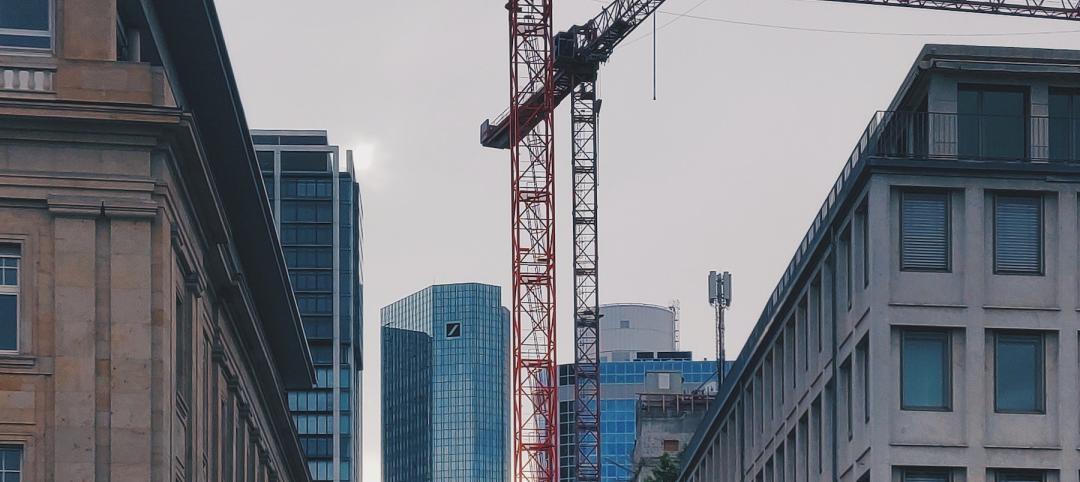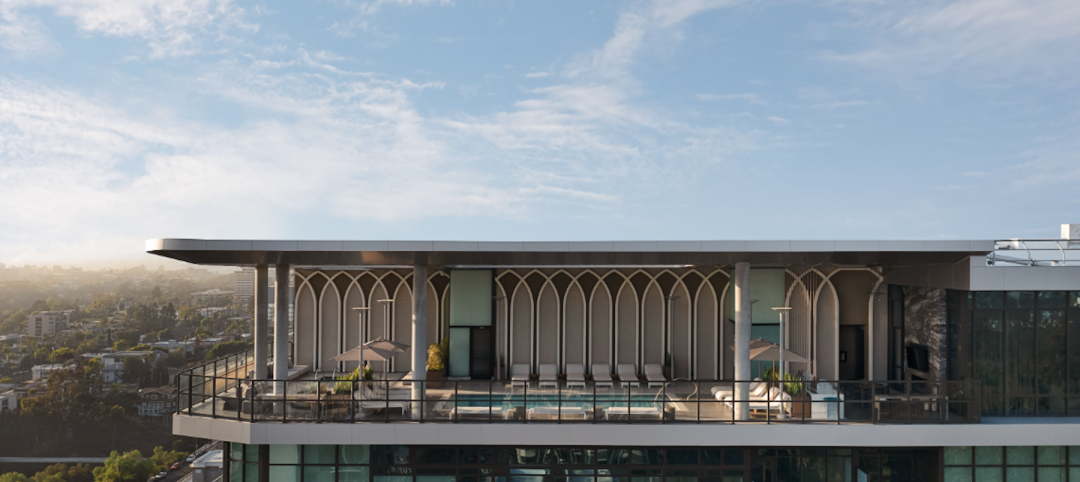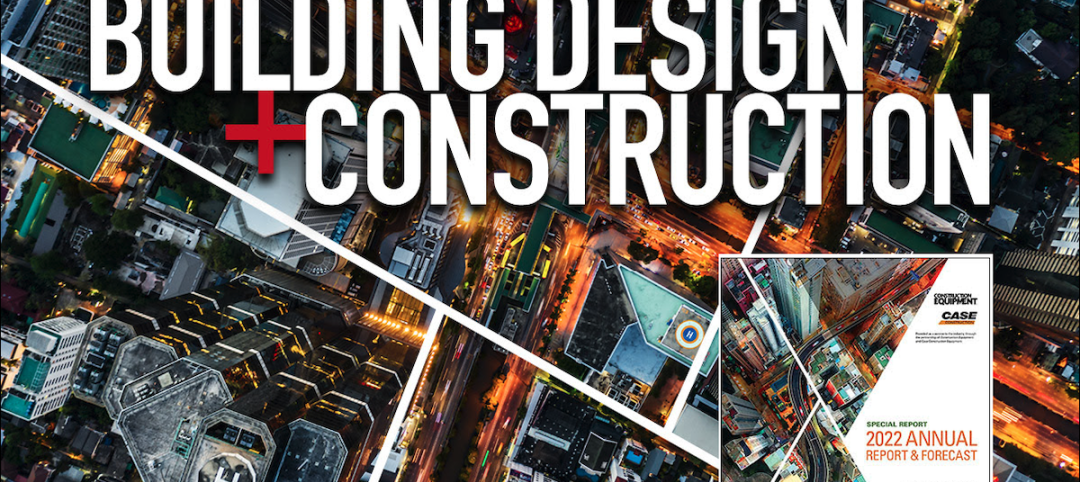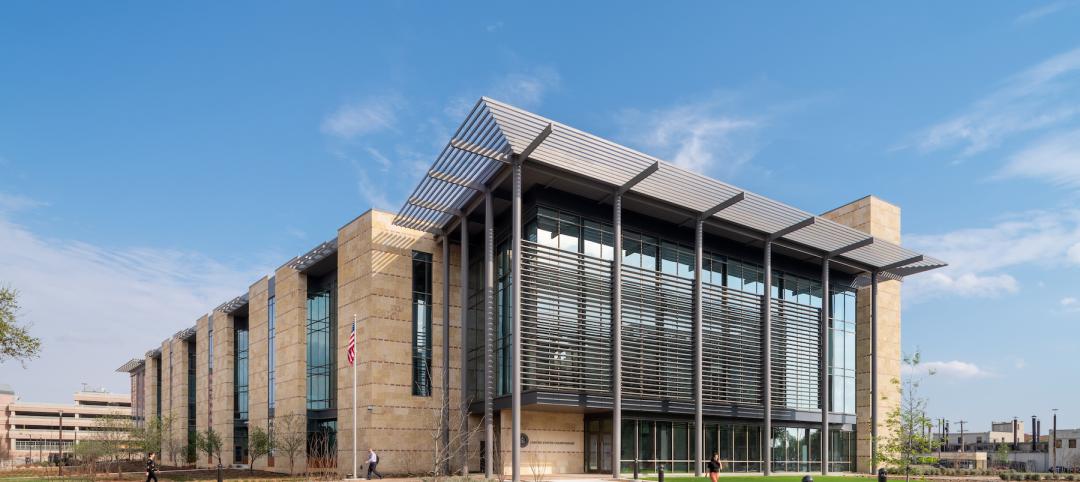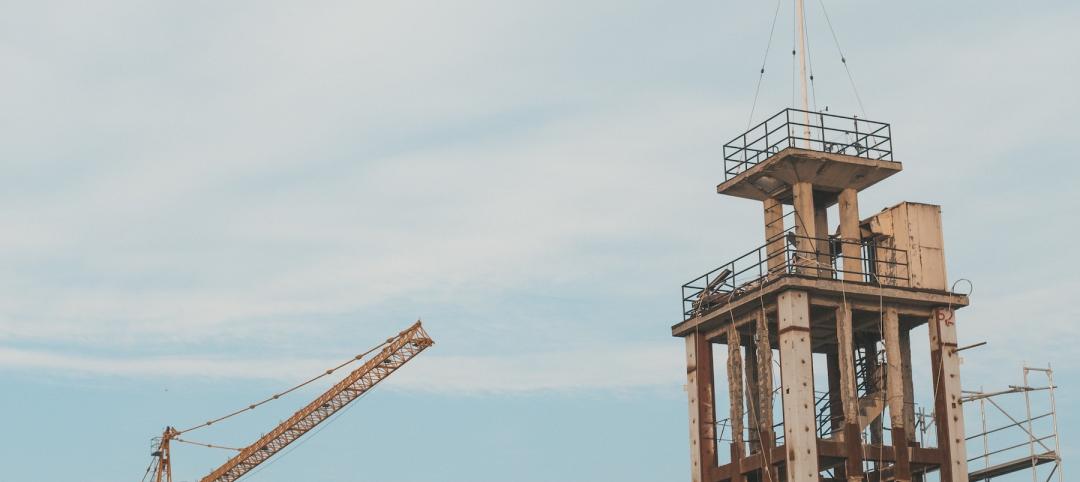Nonresidential construction spending fell 2% in January, which is the largest setback to spending since January 2014, according to the March 2 release from the U.S. Census Bureau.
However, at $614.1 billion on a seasonally adjusted, annualized basis, nonresidential construction spending still is 4.8% higher than one year ago. In addition, the spending estimate for December 2014 was revised downward from $627.1 billion to $627 billion and November's figure was revised from $624.8 billion to $621.9 billion.
"Interpreting January construction statistics is always tricky because the seasonal adjustments can never precisely reflect the impact of any given winter or weather system," said Associated Builders and Contractors Chief Economist Anirban Basu. "New England, among other places, was hit heavily by snow in January and this could explain the monthly decline in nonresidential construction spending.
"Additionally, nonresidential construction spending enjoyed positive momentum through the end of 2014 and, until January, had registered spending growth in five of the previous six months," Basu said. "It is also possible that the West Coast port slowdown impacted construction volumes, including by reducing material availability."
Three of 16 nonresidential construction subsectors posted increases in spending in January on a monthly basis.
- Communication construction spending gained 0.7% for the month, but is down 1.5% for the year.
- Highway- and street-related construction spending grew 0.2% in January and is up 8.7% compared to the same time last year.
- Manufacturing-related spending expanded by 4% in January and is up 22.5% for the year.
Spending in 13 nonresidential construction subsectors declined in January.
- Health care-related construction spending fell 2.3% for the month and is down 2.5% for the year.
- Education-related construction spending fell 3.6% for the month and 0.4% on a year-over-year basis.
- Spending in the water supply category dropped 7.5% from December, but is 3.3% higher than at the same time last year.
- Construction spending in the transportation category fell 1.7% on a monthly basis, but has expanded 8.9% on an annual basis.
- Public safety-related construction spending declined 6.7% on a monthly basis and is down 14.5% on a year-over-year basis.
- Commercial construction spending decreased 5.7% in January, but is up 14% on a year-over-year basis.
- Religious spending fell 11.4% for the month and is down 12.4% compared to the same time last year.
- Lodging construction spending is down 4.4% on a monthly basis, but is up 18.2% on a year-over-year basis.
- Sewage and waste disposal-related construction spending shed 7.5% for the month, but has grown 16% on a 12-month basis.
- Power-related construction spending fell 1.1% for the month and is 13.2% lower than at the same time one year ago.
- Conservation and development-related construction spending fell 5.1% for the month but is up 25.6% on a yearly basis.
- Office-related construction spending declined 1.7% in January but is up 13.7% from the same time one year ago.
- Amusement and recreation-related construction spending fell 3.2% on a monthly basis but is up 19.3% from the same time last year.
- Sewage and waste disposal-related construction spending fell 2% for the month, but has grown 10.5% on a 12-month basis.
Related Stories
Designers | Oct 19, 2022
Architecture Billings Index moderates but remains healthy
For the twentieth consecutive month architecture firms reported increasing demand for design services in September, according to a new report today from The American Institute of Architects (AIA).
Building Team | Oct 18, 2022
Brasfield & Gorrie chairman’s home vandalized by anti-development activists
Activists vandalized the home and vehicles of Miller Gorrie, chairman of Birmingham-based Brasfield & Gorrie, in protest of a planned $90 million, 85-acre police, fire and public safety training center in Atlanta.
Mixed-Use | Oct 18, 2022
Mixed-use San Diego tower inspired by coastal experience and luxury travel
The new 525 Olive mixed use San Diego tower was inspired by the coastal experience and luxury travel.
University Buildings | Oct 18, 2022
A carbon-neutral-ready university campus opens in Hong Kong
In early September, the Hong Kong University of Science and Technology (HKUST) officially opened its new, KPF-designed campus in Nansha, Guangzhou (GZ).
Market Data | Oct 17, 2022
Calling all AEC professionals! BD+C editors need your expertise for our 2023 market forecast survey
The BD+C editorial team needs your help with an important research project. We are conducting research to understand the current state of the U.S. design and construction industry.
Codes and Standards | Oct 17, 2022
Ambitious state EV adoption goals put pressure on multifamily owners to provide chargers
California’s recently announced ban on the sale of new gas-powered vehicles starting in 2035—and New York’s recent decision to follow suit—are putting pressure on multifamily property owners to install charging stations for tenants.
Contractors | Oct 17, 2022
Interior Investments, LLC, joins PARIC Holdings family of companies
PARIC Holdings announced that Interior Investments, LLC, has joined the PARIC Holdings family of companies. This strategic collaboration will leverage the strengths and expertise of each organization to deliver a comprehensive suite of turnkey services to best support their customers.
Justice Facilities | Oct 17, 2022
San Antonio’s new courthouse aims to provide safety and security while also welcoming the public
The San Antonio Federal Courthouse, which opened earlier this year, replaces a courthouse that had been constructed as a pavilion for the 1968 World’s Fair.
Market Data | Oct 14, 2022
ABC’s Construction Backlog Indicator Jumps in September; Contractor Confidence Remains Steady
Associated Builders and Contractors reports today that its Construction Backlog Indicator increased to 9.0 months in September, according to an ABC member survey conducted Sept. 20 to Oct. 5.
| Oct 13, 2022
Boston’s proposed net-zero emissions code has developers concerned
Developers have raised serious concerns over a proposed new energy code by the City of Boston that would require newly constructed buildings over 20,000 sf to immediately hit net-zero emissions goals.


